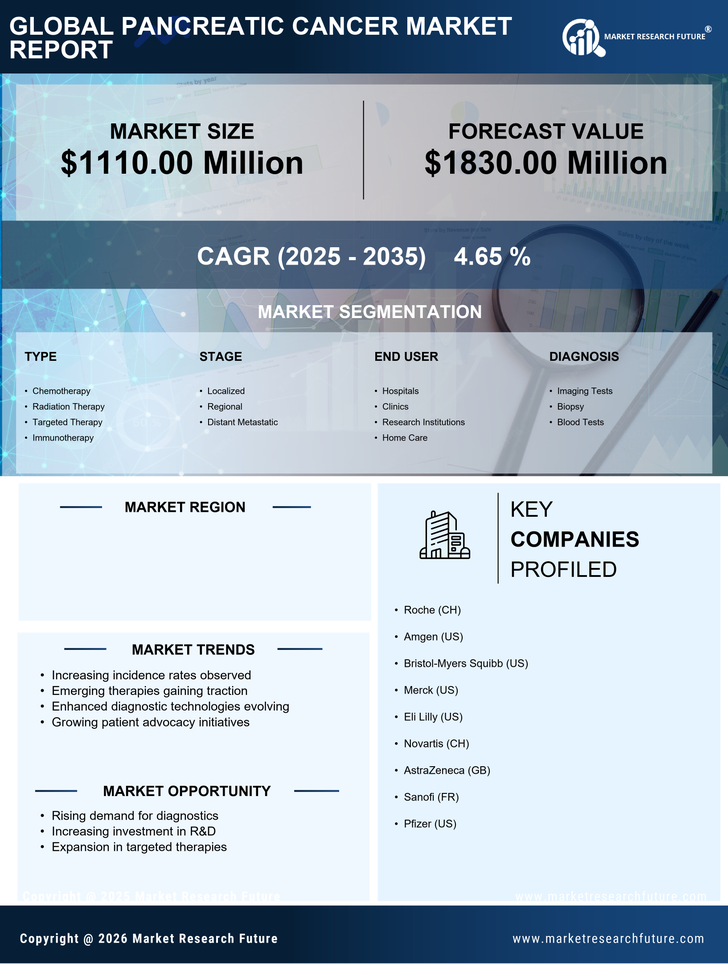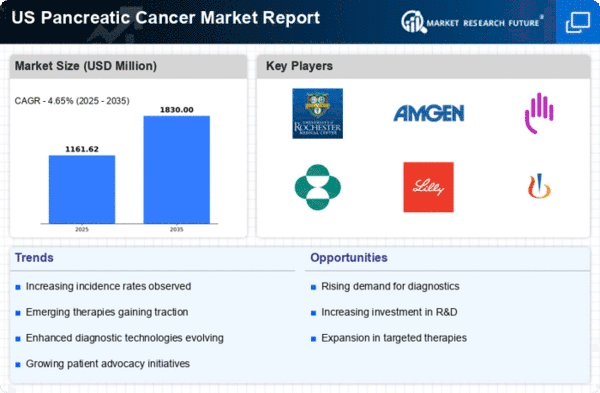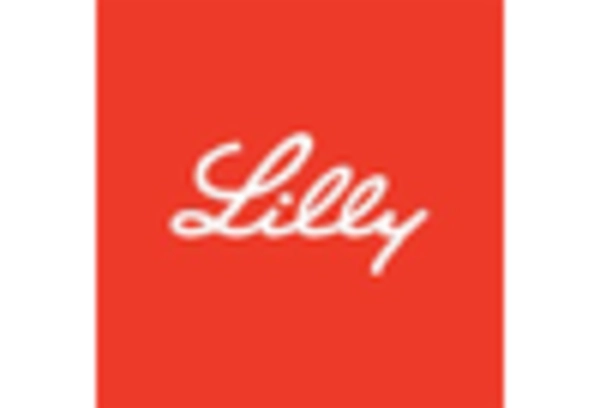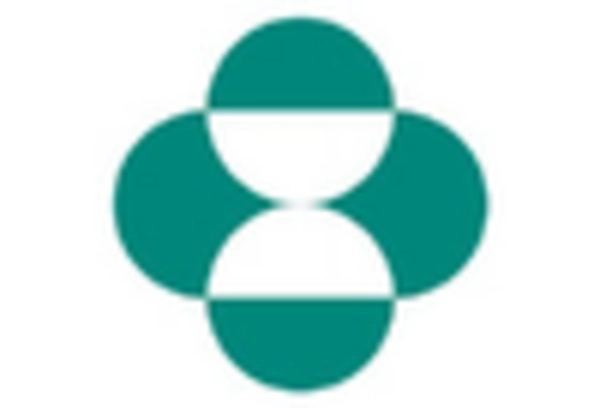Rising Incidence Rates
the pancreatic cancer market is experiencing growth due to the rising incidence rates of this disease in the US. According to the American Cancer Society, the estimated number of new cases in 2025 is projected to reach approximately 64,000, indicating a significant increase. This rise in cases is likely to drive demand for innovative treatment options and diagnostic tools, thereby expanding the pancreatic cancer market. The increasing awareness of pancreatic cancer symptoms and risk factors may also contribute to earlier diagnosis, which is crucial for improving patient outcomes. As the population ages, the incidence of pancreatic cancer is expected to rise, further fueling the market's growth. This trend suggests that healthcare providers and pharmaceutical companies may need to focus on developing targeted therapies and personalized medicine to address the unique challenges posed by this aggressive disease.
Increased Awareness and Education
Increased awareness and education regarding pancreatic cancer are crucial drivers of the pancreatic cancer market. Campaigns aimed at educating the public about the symptoms, risk factors, and the importance of early detection are gaining momentum. Organizations such as the Pancreatic Cancer Action Network are actively working to raise awareness, which may lead to earlier diagnosis and treatment. This heightened awareness is likely to result in a greater number of patients seeking medical attention, thereby increasing the demand for diagnostic services and treatment options. As more individuals become informed about pancreatic cancer, the market may see a shift towards more proactive healthcare measures. This trend suggests that educational initiatives could play a pivotal role in shaping the future landscape of the pancreatic cancer market, ultimately improving patient outcomes and survival rates.
Advancements in Treatment Modalities
The pancreatic cancer market is being propelled by advancements in treatment modalities, including chemotherapy, immunotherapy, and targeted therapies. Recent developments in drug formulations and delivery systems have shown promise in improving patient outcomes. For instance, the introduction of novel agents such as immune checkpoint inhibitors has demonstrated potential in enhancing the efficacy of existing treatments. The market for pancreatic cancer therapeutics is projected to reach approximately $4 billion by 2026, reflecting a compound annual growth rate (CAGR) of around 10%. These advancements not only provide new hope for patients but also stimulate investment in research and development, thereby driving the pancreatic cancer market forward. Furthermore, the integration of precision medicine into treatment protocols may lead to more effective and personalized approaches, addressing the unique genetic and molecular characteristics of pancreatic tumors.
Technological Innovations in Diagnostics
Technological innovations in diagnostics are significantly impacting the pancreatic cancer market. Advances in imaging techniques, such as MRI and CT scans, along with the development of liquid biopsy technologies, are enhancing the ability to detect pancreatic cancer at earlier stages. These innovations are expected to improve diagnostic accuracy and reduce the time to diagnosis, which is critical for effective treatment. The market for diagnostic tools is projected to grow substantially, with estimates suggesting a value of over $1 billion by 2027. As diagnostic capabilities improve, healthcare providers may be better equipped to identify pancreatic cancer in asymptomatic patients, leading to earlier intervention and potentially better outcomes. This trend indicates that ongoing research and development in diagnostic technologies will continue to play a vital role in the evolution of the pancreatic cancer market.
Growing Investment in Research and Development
Growing investment in research and development is a key driver of the pancreatic cancer market. Increased funding from both public and private sectors is facilitating the exploration of novel therapeutic approaches and innovative treatment strategies. The National Cancer Institute has allocated substantial resources towards pancreatic cancer research, reflecting a commitment to understanding the disease better and developing effective treatments. This influx of funding is likely to accelerate clinical trials and the introduction of new therapies into the market. As a result, the pancreatic cancer market may witness a surge in the availability of cutting-edge treatment options, which could improve patient outcomes and survival rates. The emphasis on research and development underscores the importance of collaboration between academic institutions, pharmaceutical companies, and government agencies in addressing the challenges posed by pancreatic cancer.

















